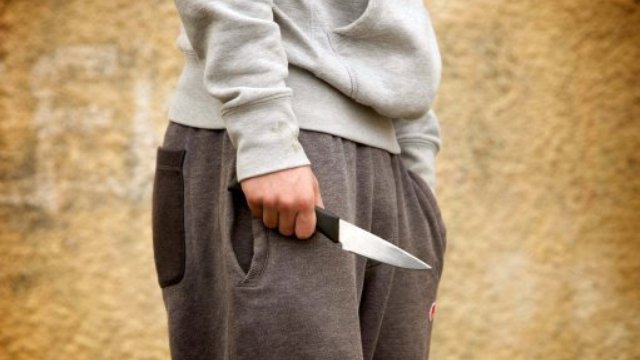Knife crime safety push in schools
17 July 2018, 13:17 | Updated: 17 July 2018, 13:19

Schools have been issued with new guidance on teaching children about the dangers of carrying a knife as part of Government efforts to tackle spiralling levels of violence.
Nearly 50,000 personal, social, health and economic (PSHE) and key stage 3 and 4 teachers in England have been provided with lesson plans designed to steer pupils away from knife crime ahead of the summer holidays.
The hour-long lessons aim to educate 11 to 16-year-olds about the dangers of social media, the potential impact of carrying a blade and possible strategies to resist peer pressure.
Ministers announced the measure amid mounting concern over violent crime following a spate of fatal stabbings this year.
Last year, forces in England and Wales recorded 39,598 offences involving a knife or sharp instrument - a 22% increase compared with the previous 12 months.
The issue will fall under the spotlight again on Thursday when the latest official crime statistics are released.
On Tuesday, Home Secretary Sajid Javid will chair the latest meeting of the newly established serious violence taskforce, which will focus on early intervention and methods for stopping young people being drawn into crime.
Crime Minister Victoria Atkins said: "The summer holidays can pose additional dangers to young people, which is why we are determined to do everything we can to keep them safe and give them the tools and resilience they need to enjoy the summer break.
"We need everyone to work together to tackle the rise in serious violence and I thank every teacher who takes the time in their busy schedule to deliver these vital lessons to their students."
The Home Office materials, which were first circulated last Monday, include a four-page guidance note.
It states that the lessons have been designed to help reduce knife crime by equipping teachers to "challenge the myths and communicate the realities" of carrying a knife among 10 to 21-year-olds.
The document says: "It is important that young people are able and confident to identify the risks associated with carrying a knife and feel empowered to live knife free.
"In line with best practice, the lessons and resources have been carefully designed to minimise feelings of fear, shock or guilt while learning about this potentially sensitive topic.
"It is important to use a reassuring approach throughout and to avoid 'worst case scenario' thinking."
The guidance also lists slang terms that students may use, such as "shank" or "tool" for knife, "mandem" and "posse" for gang and "feds" for police.
Children's Minister Nadhim Zahawi said: "Knife crime has devastating consequences on society and this government is determined to take action and protect our children, families and communities from it.
"These lesson plans will help illustrate the real impact of knife crime on young people's lives. It's heartening to know schools up and down the country are taking advantage of them."






